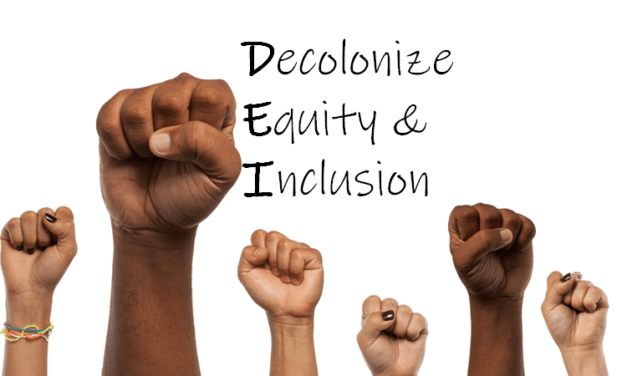Decolonizing Diversity, Equity, and Inclusion Work: A Call To Action
When we began this series 11 weeks ago, I am not sure I expected us to stay on the topic this long, nor did I anticipate its timeliness to this moment we are experiencing now. Racism is not new, but this newfound energy and outward (re)commitment to justice and dismantling racism by organizations and corporate leadership is. Inasmuch as I can be cynical about it all, I am also hopeful, inspired, and re-energized. As leaders begin to (ideally) align their organizational priorities, financial resources, and accountability measures with statements of solidarity and empathy, I would like to offer specific actions that affirm what we explored in this series.
Read More

![Decolonizing Diversity, Equity, and Inclusion Work: … Means Naming White Supremacy Culture [In Ourselves] Part II](https://theinclusionsolution.me/wp-content/uploads/2020/05/Leadership-Blog.png)


![Decolonizing Diversity, Equity, and Inclusion Work: … Means Naming White Supremacy Culture [In Ourselves] Part V](https://theinclusionsolution.me/wp-content/uploads/2020/05/decolonize-white-male-627x376.jpg)
![Decolonizing Diversity, Equity, and Inclusion Work: … Means Naming White Supremacy Culture [In Ourselves] Part IV](https://theinclusionsolution.me/wp-content/uploads/2020/05/rest-627x376.jpg)
![Decolonizing Diversity, Equity, and Inclusion Work: … Means Naming White Supremacy Culture [In Ourselves] Part III](https://theinclusionsolution.me/wp-content/uploads/2019/08/GettyImages-831657190.jpg)


















